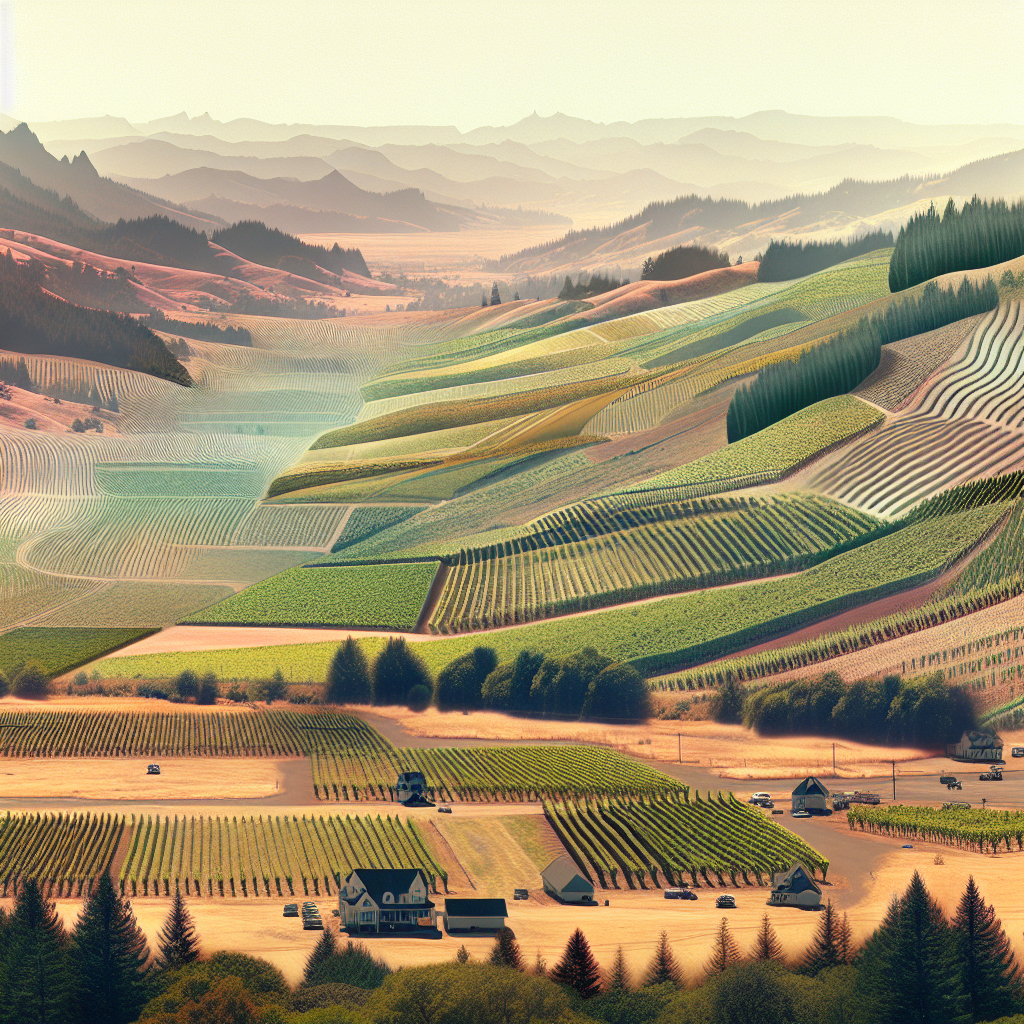A Taste of Change: How Climate Change is Stirring Things Up in Oregon’s Wine Industry
Don’t we all love a good Pinot noir? Especially if it’s a bottle born and bred in the gorgeous rolling vineyards of the Willamette Valley, kissed by Oregon’s truly one-of-a-kind climate. Now imagine that same Pinot, but different – simpler, lacking its signature depth. A troubling image, isn’t it? Well, it’s what our local winemakers are grappling with due to climate change.
A Wine Region Unlike Any Other
What makes Oregon’s wine industry exceptional is the incredible tapestry of microclimates tucked between the Pacific Ocean and the Cascade Mountains. It’s this sort of Goldilocks scenario: not too hot, not too cold, with the perfect balance of sun and occasional showers from the Pacific weather systems. This cool-climate viticulture is what makes Oregon’s Pinot noir, Chardonnay, and other grape varieties pop with unique and vibrant flavors.
From the cool, foggy coastlines of the Newport area to the toastier regions like the Rogue and Applegate Valleys, and the beauty of the Columbia Gorge where the passion for Rieslings and Zinfandels runs deep – every grape has its place. But changes to this equilibrium from climate change is cranin’ our melon.

Grappling with a Changing Climate
Climate change causes all those normal truths about the Oregon climate we tend to take for granted to swirl around in unpredictable weather patterns. Anyone who’s ever strolled the banks of the McKenzie River after Blitzen, the local golden retriever, knows that change is in the air, as the crisp weather turns unseasonably mild. Locals often quip about Oregon having only two seasons – before rain and after rain – but the joke is less funny when vineyard caretakers are sweating in February.
In recent years, sugar content, which determines a wine’s alcohol level, is on the rise in Oregon grapes due to higher temperatures. Ever cracked open a fresh bottle from Brooks Winery, sat back to enjoy that enlightening mix of heady aromas, only to have your taste buds ambushed by an excessive sweetness? Yep, that’s climate change in action.
Long temp changes also trigger early phenolic ripeness – when skins and tannins mature ahead of the sugar-yeast balance that leads to the lovely flavors we expect from our beloved Willamette Valley Pinot noirs, or the delicate whites from the Dundee Hills. Imagine biting into a marionberry pie only to find its sweetness oddly subdued – same problem.
Fighting Wine with Wine
But as we know, Oregonians are champions of resilience, blessed with that Pac-NW addlepated ingenuity. Wineries are exploring grape varieties previously unthinkable in Oregon’s climate. Expect more Tempranillo from Applegate Valley, or Albariño from Elkton – these warmer climate grapes could be the future.
Winemakers are also turning to dry farming techniques – a great fit with our culture that’s livin’ green as a Douglas fir. Like how anyone worth their sea salt knows to traverse Burnside on foot to avoid the snarl during morning gridlock, winemakers are learning to adapt. They fine-tune their viticultural tactics, apply more thoughtful canopy management, and even utilize frost fans to keep those precious clusters from turning into raisins.
Leaning into the Wind of Change
Oregon’s wine industry is no stranger to challenges, its history as layered and complex as a Black Cap Pinot from WillaKenzie Estate. The same spirit that carries us up Multnomah Falls or fuels bonfires along Cannon Beach will guide us through the changes besieging our beloved vineyards.
All said, there’s no question that climate change is throwin’ a barn dance in our vineyards. It’s forcing us, and our supremely talented winemakers, to find new steps, rhythms, maybe even switch to a whole new genre of music. But isn’t that a bit like what life’s like here in beautiful, quirky, resilient Oregon?
Next time you find yourself in McMinnville with a glass of locally produced bottle in hand, savor the taste, deep, complex and ever-changing. And remember, just like our vines, we dig our roots deep and hold strong during the toughest squalls. For if we’re notin’ else, we are Oregonians. And ain’t life grape?
